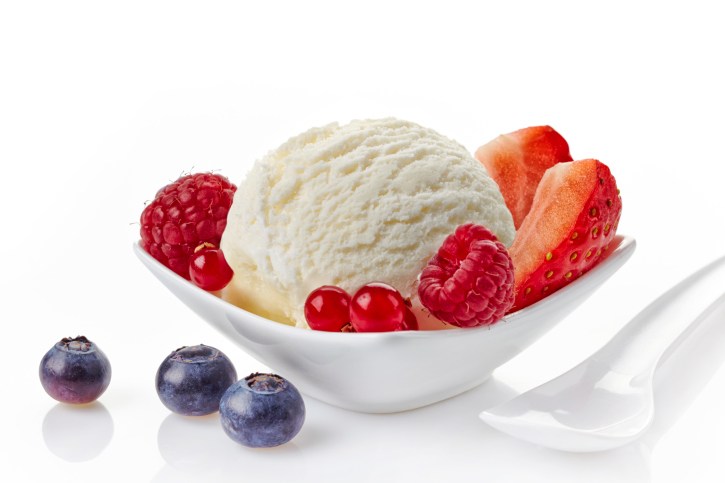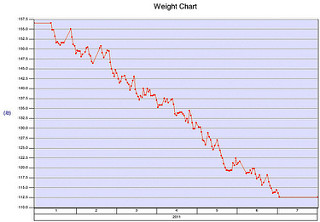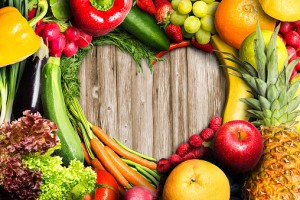Lose Weight > Common Sense To Lose Weight > Common Sense Article > Are Your Food Beliefs Sabotaging Your Weight Loss?
Are Your Food Beliefs Sabotaging Your Weight Loss?
As part of this workshop, we ask participants to list limiting personal beliefs they have around food and weight loss. Interestingly, many of them share similar belief systems, based on bad logic and convenience. Most of the time we're not conscious of these ideas, yet we follow them as if they were law. If you are struggling with weight loss or your relationship to food, I recommend you identify your guiding beliefs. These represent a mirror for what you have (or don’t have) in the area of your food and body right now.
To find yours, assess how things look in your life right now. For example, I used to find myself frequently baking late at night (and then indulging in what I made). I realized I had a limiting belief that said, If I’m feeling stressed at night, baking and eating will make me feel better. Actually, it made me feel more upset and disappointed in myself for not eating in an empowered and graceful way.
The great thing about our belief system is that we can change it. And change it immediately.
Once I realized I was living by this limiting belief, I rewrote the belief to be this: When I feel stressed at night, it's because I want to be nurtured, and making a cup of tea will do that. Baking and eating the treats won't.
Now I rarely bake and do so only in the afternoon. If I choose to indulge, it's not based on emotion or convenience. To read more about how I broke my night-time eating, click here.
With the permission of one of the participants, I'm sharing her top seven limiting personal beliefs and the truths behind them. They are not only nutritionally-unsound, but they are also made-up excuses for not sticking to her food plan. 1. I need starchy carbohydrates at every meal.
Starchy carbohydrates (such as potatoes, pasta, bread, and rice) are acidifying, insulin-stimulating and lipolytic. If you eat more than two ounces at every meal, you will start the insulin-cascade and block fat loss. To burn fat, you need vegetables and a small amount of protein at every meal, as protein stimulates the hormone glucagon, which enables fat burning. 2. I should drink chocolate milk after every run.
A 150-pound woman will burn approximately 335 calories during a 30-minute run. A 16 ounce glass of chocolate milk has 376 calories. The chocolate milk wins. While recent studies have suggested that chocolate milk can be used as a post-workout drink, this is for a serious athlete, not the woman who wants to burn fat. The serious athlete needs to replenish her glycogen levels as quickly as possible, and the high sugar content of the chocolate milk does just that. 3. If I am tired, I should not exercise.
Listen to your body. If you're physically tired, take a yoga class which is naturally rejuvenating. If your mind is tired, gently remind it that you always feel better after a workout. Then get dressed, and go. 4. I should eat little or no fats.
You should avoid damaged fat, which is oxidized fat and found in fries, tempura, roasted nuts, heated flax seed and trans fats. The only thing your body can do with it is store it as fat. However, non-damaged dietary fat is crucial for fat loss. Without sufficient fat intake, the cells that listen to our fat-burning hormones (glycogen, growth hormone, testosterone, estrogen, thyroxine, cortisol) stop working, and we struggle to lose weight. Eat small portions of avocado, raw nuts and seeds, coconut oil and oily fish. 5. I need to eat regularly even if I am not hungry.
To burn fat, you want to eat every four hours, not every two hours. By leaving four hours between your meals and snacks, you enable the body to dip into its fat stores and convert fat to glucose for energy. If you keep topping up your glucose levels by eating every two hours, you don't allow the body to break down fat as it has a constant supply of glucose. When you reach your ideal weight, and your body has healed, you can start listening and following your body's hunger mechanism. Until then, you have to retrain it by leaving the appropriate intervals. 6. I need to eat soon after waking up.
To optimize fat burning, leave 12 hours between the last meal of the day and first meal of the next day. If your last meal is at 8pm, then eat at 8am. If your last meal is at 10pm, then eat at 10am. The 12-hour fast gives sufficient time for the digestive system to rest and regenerate versus managing incoming fuel on a consistent basis. 7. Chocolate is good for me, so I should have it after every meal.
Dark chocolate is one of the more superior treats because it contains antioxidants and phytonutrients which protect the body on a cellular level. However, even 85% dark chocolate is 50% fat and 43% carbohydrates. It's not a free food. Treats should not be indulged in on a daily basis if your goal is to lose weight. This not only sets up a Pavlovian response, but also desensitizes the body to dopamine, and more chocolate is required to get that same high. Read more about why the "everything in moderation" rule is sabotaging your weight-loss efforts.
What are your limiting personal beliefs around food and weight loss?
If you are interested in joining our next Body Project workshop via phone or Skype, please email [email protected].
Photo Credit: Shutterstock.com
Related Articles
-
Resistance Training For Weight Loss
Resistance or strength training is governed by exercises that use a we
-
Is Snoring Interfering With Your Rest? Read These Tips.
Many people are embarrassed by the fact that they snore. Most peo
-
Weigh in With Jen: Part 5 – Starting on Weight Watchers
Your first trip to Weight Watcher
-
Scientific Research Shows Seaweed May Block Fat
Scientists at Newcastle University in England have discovered an
-
Five Ways to Make Sticking with a Fat Loss Program Easier
Tired of struggling to stick with your fat loss workout or diet pro
-
Make Some Healthy Living Choices To Lose Weight
The advancement of technology also changed our lifestyle dramatically.
- DON'T MISS
- The Best Way To Lose Weight Without Exercising Or Counting Calories
- How To Lose Weight From A Low Carbohydrate Diet Plan
- Savor The Flavor With The Flavor Spray Diet
- It抯 Not As Simple as Eating Less and Exercising More
- Toxins Formed In Cooked Foods - Avoiding Heat Induced Carcinogens in Your Food
- What Is Docusate Sodium And Could It Help
- Guidance for your pet health
- Four Big Weight Loss NoNos
- What are Empty Calories?
- Most Effective Type Of Weight Loss Programs




